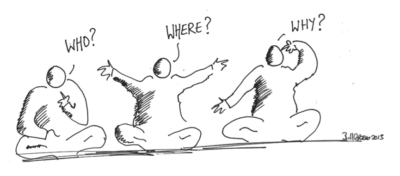
Academic versus Creative Writing
If you and your students are already familiar with the DyslexiaCatalyst way of scaffolding Creative writing, then this section will need less explanation!
It is the same principles of scaffolding creative writing but with allowances made for the fact that academic writing requires different skills, vocabulary, style, structure and formality.
The main point to remember is that you will know all of the information below but, being a subject teacher, may feel that you don’t have to teach these skills, but I have found in my holiday courses for dyslexic students, they had been taught the individual skills but almost none of them were able to use these skills back in their writing. If you do, you will find the quality of your students’ work will increase dramatically.
Academic Writing
- Your students need to be made aware of the system of academic ‘speak’. They need to collect generic academic wording to use back in their writing.
- ‘Write Great Essays by Peter Levin’ is an excellent book for your students to own.
Source material
- Your students need to know how to select good source material, whether it is from the internet, books, magazines etc.
- They need to make a note of where they saw a piece of information and they should make a subject-specific word and phrase list, as they go along. These are their ‘life buoys’,
- Once this is done, they should put their ‘sources material’ out of site, to prevent plagiarism.
Reading
- Your students will need to be taught how to skim for overview, scan for key vocabulary,.
- Be discerning about what they read and be able to pick out the key vocabulary.
Vocabulary
- Students need to see formal (not colloquial) style writing. Sometimes actually giving them three or four anonymous scripts from the year before with a sheet of what is required at different grade boundaries is a real eye opener. Especially if you ask them to mark the essays. They are usually much harsher than you would have been!
- Academic Vocabulary lists, which could be used in any essay, need to be made.
- Subject-specific vocabulary lists should be made for each new topic that needs to be written about.
- If quotes, sources and referencing styles need to be used, they will have to be taught at the beginning.
Essay question
- A list of key ‘instruction’ words could be made with definitions of what key words in the title/question.
- Practice can be made of highlighting the subject and instruction vocabulary.
- Essay types might need to be explicitly taught.
Essay planning
- Students need to practice how to plan an essay for homework, based on word count
- And in an exam, based on time.
- Frameworks can be of great use.
The Essay
This simple structure is a revelation to most students!
- Introduction, 10%
- Three/ four key sections approx.20% each
- Conclusion 10%
- Proofreading